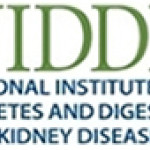- Industry: Government; Health care
- Number of terms: 17329
- Number of blossaries: 0
- Company Profile:
The National Institute of Diabetes and Digestive and Kidney Diseases (NIDDK) conducts and supports research on many of the most serious diseases affecting public health. The Institute supports much of the clinical research on the diseases of internal medicine and related subspecialty fields, as ...
An irritation of the pancreas that can cause it to stop working. It is most often caused by gallstones or alcohol abuse.
Industry:Medical
A way to provide food through a tube placed in the nose, stomach, or small intestine. A tube in the nose is called a nasogastric or nasoenteral tube. A tube may be placed into the stomach or small intestine through a hole called a gastrostomy, percutaneous endoscopic gastrostomy (peg), jejunostomy, or percutaneous endoscopic jejunostomy (pej).
Industry:Medical
Tests that measure muscle pressure and movements in the gastrointestinal tract.
Industry:Medical
An irritation of the liver that sometimes causes permanent damage. Hepatitis may be caused by viruses, medicines, or toxins.
Industry:Medical
A procedure that uses x rays and computers to produce two- and three-dimensional images of the colon and displays them on a screen. A vc can be performed with computerized tomography (ct), also called a ct scan, or with magnetic resonance imaging (mri).
Industry:Medical
A bacterium naturally present in the large intestine that can make a toxin that causes diarrhea.
Industry:Medical
A condition in which the body cannot absorb fat. It causes a buildup of fat in the stool and loose, greasy, and foul-smelling bowel movements.
Industry:Medical
A sore in the lining of the esophagus, stomach, or duodenum, usually caused by the bacterium helicobacter pylori. An ulcer in the stomach is a gastric ulcer; an ulcer in the duodenum is a duodenal ulcer.
Industry:Medical
The solid waste that passes through the rectum as a bowel movement. Feces are undigested food, bacteria, mucus, and dead cells.
Industry:Medical
